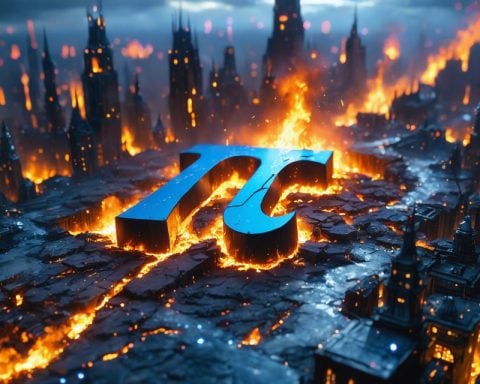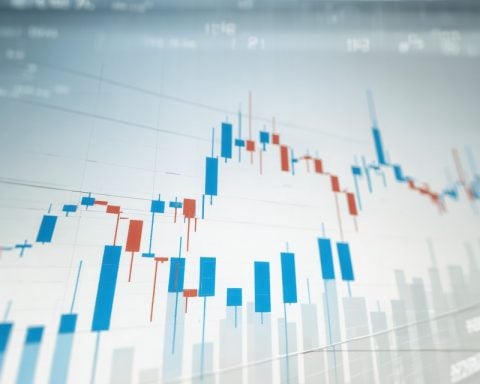Spotlight on Rare Earth Elements and MP Materials
As the electric vehicle (EV) market surges forward, the spotlight shifts to the often-overlooked yet vital rare earth elements (REEs). These elements, indispensable for high-performance EV components, are mined by companies like MP Materials Corp., a firm making strides in the industry. With current prices hovering around $21.60, MP Materials is leveraging its unique position as one of the only rare earth producers in the United States.
Understanding Rare Earth Elements
Rare earth elements, a group of 17 chemically similar metals, play a critical role in the production of powerful permanent magnets found in EV motors. The dominant player in the rare earth market is China, controlling over 80% of supply, which raises concerns for Western economies due to potential supply chain vulnerabilities.
MP Materials’ Strategic Moves
Headquartered in Las Vegas, Nevada, MP Materials operates the Mountain Pass mine, the sole large-scale rare earth processing facility in the U.S. The company is transitioning towards an independent supply chain, working to produce essential materials domestically to reduce reliance on imports.
While its third quarter revenues have grown by 20% year-over-year, the company reported a net loss due to significant investments in expansion projects. Anticipation builds as the “Independence” facility in Fort Worth prepares for production of crucial neodymium-iron-boron magnets. With strong projections for future growth, MP Materials stands to play a pivotal role in shaping a sustainable EV supply chain.
Long-Term Implications of Rare Earth Elements in the EV Revolution
The escalating demand for electric vehicles (EVs) inherently amplifies the importance of rare earth elements (REEs) within the global economy. As the automobile industry pivots towards sustainability, the need for reliable and sustainable access to these materials becomes paramount. The geopolitical landscape may shift dramatically as nations seek to secure their supply chains, potentially leading to alliances and partnerships that could reshape trade dynamics.
Culturally, the growing awareness around the environmental implications of mining REEs prompts a broader discourse on responsible sourcing and sustainability. As consumers become more eco-conscious, they may demand transparency in the supply chain, compelling companies to adopt greener practices and invest in recycling technologies for REEs, which could further diminish the extraction footprint.
Environmentally, the mining of REEs raises concerns regarding habitat destruction and pollution. The industry faces pressure to mitigate these effects, highlighting a need for innovative extraction methods that minimize environmental degradation. Future trends may see a surge in responsible mining initiatives and a push for enhanced regulatory frameworks that prioritize ecological integrity.
Ultimately, the long-term significance of rare earth elements extends beyond the EV sector; it is intertwined with global sustainability efforts and energy independence. As countries grapple with energy resources amid climate change challenges, the trajectory set by companies like MP Materials will invariably influence both economic stability and environmental stewardship worldwide.
Unlocking the Future of Electric Vehicles: The Critical Role of Rare Earth Elements
Spotlight on Rare Earth Elements and MP Materials
As the electric vehicle (EV) market accelerates, the significance of rare earth elements (REEs) becomes increasingly apparent. These elements are essential for manufacturing high-performance EV components, particularly in the creation of powerful magnets. Companies like MP Materials Corp. are at the forefront of this industry, strategically positioning themselves as crucial players amidst rising demand. With current market prices around $21.60 for rare earth elements, MP Materials stands out as one of the few domestic producers in the United States.
Understanding Rare Earth Elements
Rare earth elements comprise 17 chemically similar metals that are critical for modern technology, including electric vehicles. These elements are primarily used in high-performance permanent magnets, which are vital for the efficiency and power of EV motors. The market for rare earth elements is heavily dominated by China, which controls over 80% of the global supply, leading to significant concerns regarding supply chain stability and strategic vulnerabilities for Western economies.
MP Materials’ Strategic Moves
Based in Las Vegas, Nevada, MP Materials operates the Mountain Pass mine, America’s only large-scale rare earth processing facility. The company is making substantial efforts to develop an independent supply chain for rare earth materials, aiming to bolster domestic production and reduce reliance on imports. This strategic shift aligns with broader trends in the EV industry, focusing on sustainability and security.
Despite a reported net loss due to substantial investments in expansion projects, MP Materials’ third-quarter revenues have seen a remarkable 20% increase year-over-year. This growth is a testament to the company’s commitment to scaling its operations. A key development in this journey is the upcoming “Independence” facility in Fort Worth, which is set to produce significant quantities of neodymium-iron-boron magnets, a critical component in EV motors.
Pros and Cons of MP Materials’ Situation
– Pros:
– Domestic production reduces reliance on foreign supplies, enhancing supply chain security.
– Significant revenue growth year-over-year indicates strong market demand.
– Investment in local facilities promises job creation and economic stability in the region.
– Cons:
– High initial investment costs leading to net losses in the short term.
– The need for advanced technology and skilled labor can pose challenges in scaling operations effectively.
– Dependence on volatile global rare earth prices could affect long-term profitability.
Market Trends and Future Insights
The market for rare earth elements is expected to expand significantly as electric vehicle adoption continues to rise. Analysts predict that the demand for these materials will outpace supply growth, potentially leading to higher prices and increased focus on alternative sources. MP Materials is poised for growth, especially with its upcoming production capabilities at the Fort Worth facility.
Furthermore, innovations in recycling rare earth elements from old electronics and EV batteries are emerging as a sustainable solution that could mitigate supply chain vulnerabilities. As sustainability becomes a central theme in manufacturing, companies in this space must adapt quickly to changing regulations and consumer demands.
Limitations and Challenges Ahead
While MP Materials is making strides, there are several limitations and challenges to consider. The reliance on specialized technology for extraction and processing can restrict production efficiency. Additionally, environmental concerns surrounding mining practices pose potential regulatory hurdles that could impact operations and public perception.
Pricing and Market Analysis
As of now, the price for key rare earth elements is approximately $21.60, but fluctuations are common based on market demand and geopolitical factors. Industry experts suggest keeping an eye on international relations, particularly U.S.-China dynamics, as they play a crucial role in rare earth pricing and availability.
For more detailed insights on MP Materials and the rare earth element market, visit MP Materials.
In conclusion, as the EV market continues to thrive, the role of rare earth elements and companies like MP Materials will be vital in shaping a sustainable and secure supply chain for the future.


















